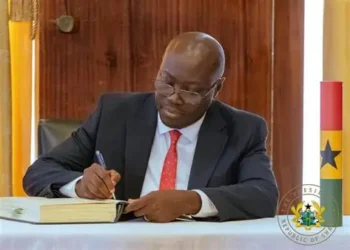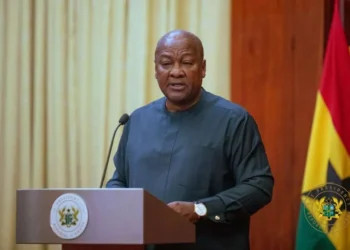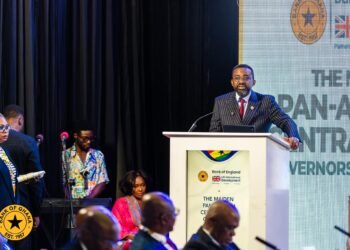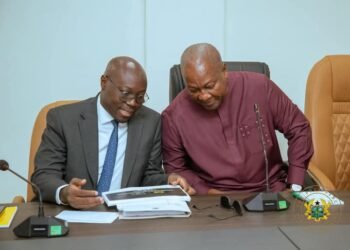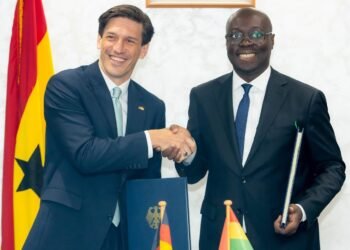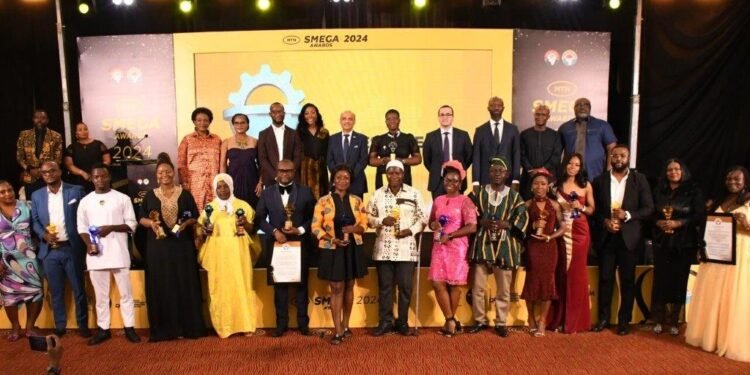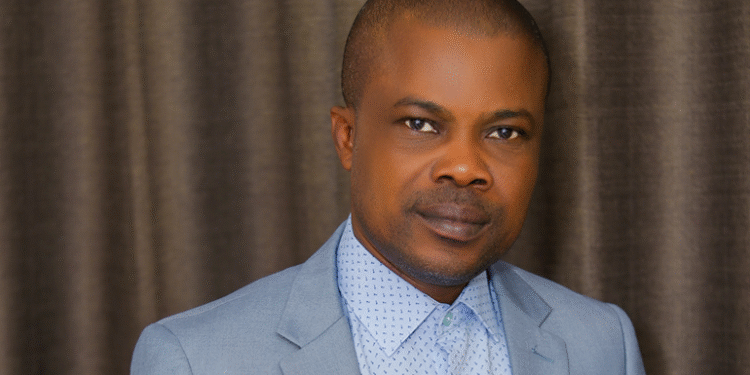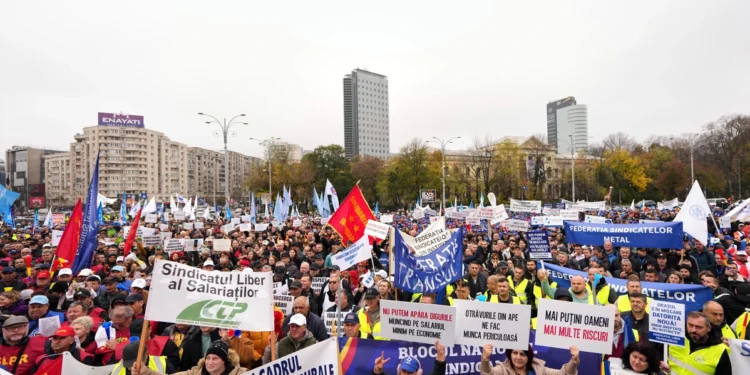Ghana’s development landscape has been shaped by extremes of socialists and capitalists, reflecting the country’s deficient development and the need for a merger in the form of Public-Private Partnership (PPP).
Ghana has tried both sides with different governments, yet has little result to show in terms of impact and development. Experts are calling for a fusion of concurrent national development strategies. PPPs serve as the platform that bridges perception and policy with strategic partnerships to build the nation.
According to UNESCO, PPPs are “collaborative agreements between government entities and private sector companies to finance, build, and operate projects that serve the public.”
The Executive Chairman of the KGL Group, Mr. Alex Apau Dadey, among other experts, calls for a national shift to build PPPs to complement the government’s efforts and initiatives. He, therefore, urged national development stakeholders to collaborate through shared value and trust to build the nation we all desire.
Speaking at a lectureship in Accra, themed “Public-Private Partnership – A Case Study of Responsible Corporate Citizenship,” he emphasized the role of the private sector and the government in Ghana’s development journey.
“Governments do not create wealth – the private sector does. The government may set the rules of the game, but it is the private sector that plays it, with innovation, capital, and resilience. The time has come for Ghana to move beyond seeing the private sector as a rival and instead recognize it as a vital ally in national development.”
Mr. Alex Apau Dadey, Executive Chairman of the KGL Group
The Need for PPPs
According to UNESCO, PPPs “leverage the strengths of both sectors to deliver public services or infrastructure more efficiently and effectively.” They added that the main benefits of the partnership include risk sharing for easier bearing, allowing for long-term contracts mostly covering 20-30 years, increased private sector investment to reduce public sector financial burden, ensuring accountability and performance-based payments, and promotion of innovation and efficiency.

Mr. Alex Dadey compared local enterprises that once flourished, such as Siaw Industries, Ghana National Trade Corporation (GNTC), and Neoplan Ghana, with successful international businesses such as Tata Motors and Shoprite. He stressed that the difference is nurturing, protection, deliberate support, and policy alignment from PPPs.
The solution to Ghana’s growth and development challenge, he reiterated, is PPPs established on “Responsible Corporate Citizenship, where business success translates into shared social and economic value.” He also mentioned that a business that seeks to grow must become “transgenerational — built on integrity, honesty, and trust, capable of outliving their founders and serving future generations.”
Experts are poised on the role of PPPs in connecting innovation to infrastructure initiatives when planning long-term policy visions to promote good governance and shared risk.

The government, according to Mr. Dadey, cannot sustain the economic growth Ghana has gained in recent months alone. The way forward is the involvement of the private sector, he points out.
“You see, in every thriving economy, there comes a point where the government can no longer do it alone. The private sector must not only be involved — it must lead. But it cannot do so in isolation.”
Mr. Alex Apau Dadey
Stakeholder Contribution in a Successful PPP
Aside from resetting the country, the mindset of the people also requires a reset, the Executive Chairman of the KnowledgeWorks Global Learning (KGL) Group said. He continued that aid will not build Ghana’s economic independence, but ownership will – “ownership of resources, industries, and ideas driven by Ghanaians for Ghanaians.”
He revised the role of Ghanaian citizens in the diaspora in contributing to Ghana’s development, alluding to the fact that “no country has developed or sustained progress without the engagement and commitment of its most valuable human resource — its diaspora.”

Ghana must swing from “Foreign Direct Investment (FDI) to Diaspora Direct Investment (DDI) – where global Ghanaians invest their capital, knowledge, and expertise back into the nation’s development,” he said.
The government, private sector, citizens abroad, and all citizens need a finetuned and reengineered collaborative mindset to ensure that government initiatives and projects are private sector-inclusive in funding, management, expansion, and growth.
The KGL Group
Mr. Dadey opined that today’s development leverage should be extended to shelter Environmental, Social, and Governance (ESG) principles and not just developmental economics. It is crucial to establish responsible businesses while promoting national sustainability.
He referenced the KGL Foundation’s specific enterprises in youth empowerment, education, health, arts and culture, and sports as a hands-on display of responsible corporate citizenship, which has improved countless lives. The activities of the foundation span into youth sports development as well.

He again called on all sectors — public, private, and the diaspora — to participate in redefining Ghana’s development narrative, as “the government cannot do it alone. Businesses cannot do it alone. Academia cannot do it alone. Communities cannot do it alone.”
However, “together — when we bring our ideas, our resources, our knowledge, and our will — we can ignite transformation that will echo for generations. The time for convenience is past. This is the hour for conviction and partnership,” Mr. Dadey charged.
READ ALSO: IMF Support or Sovereign Strength? Ghana’s Fiscal Reforms Face the Real Test in 2026 Budget




